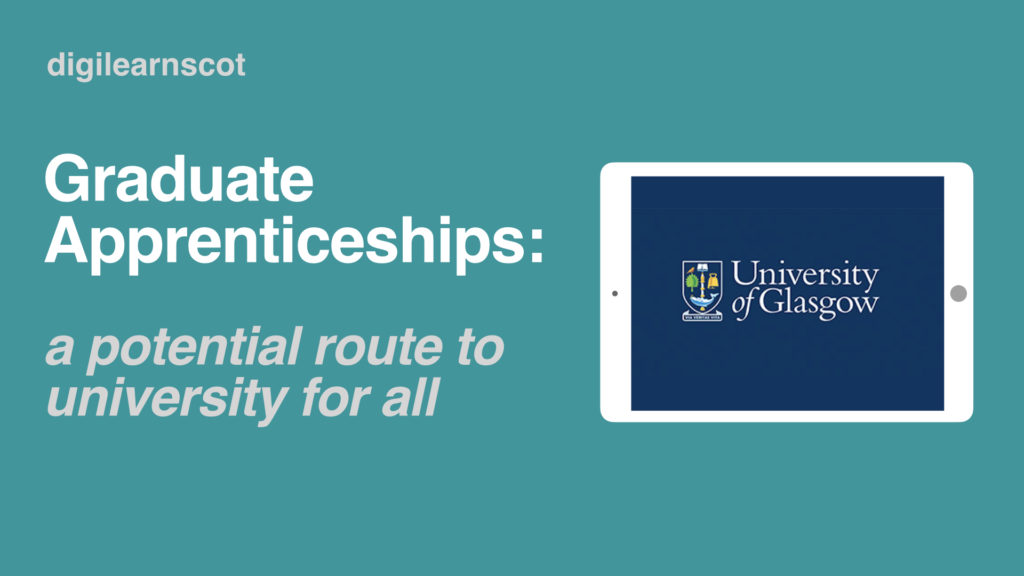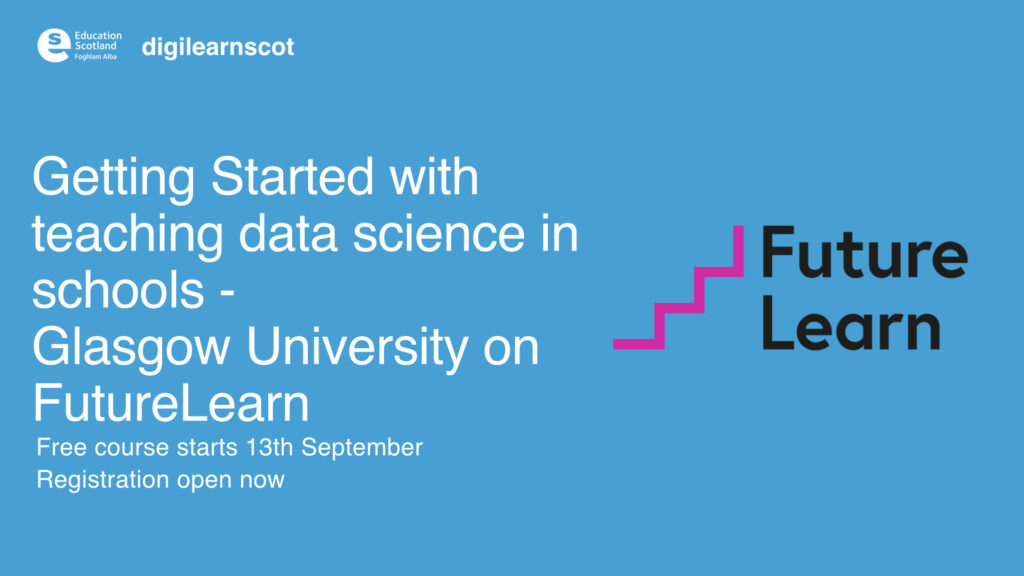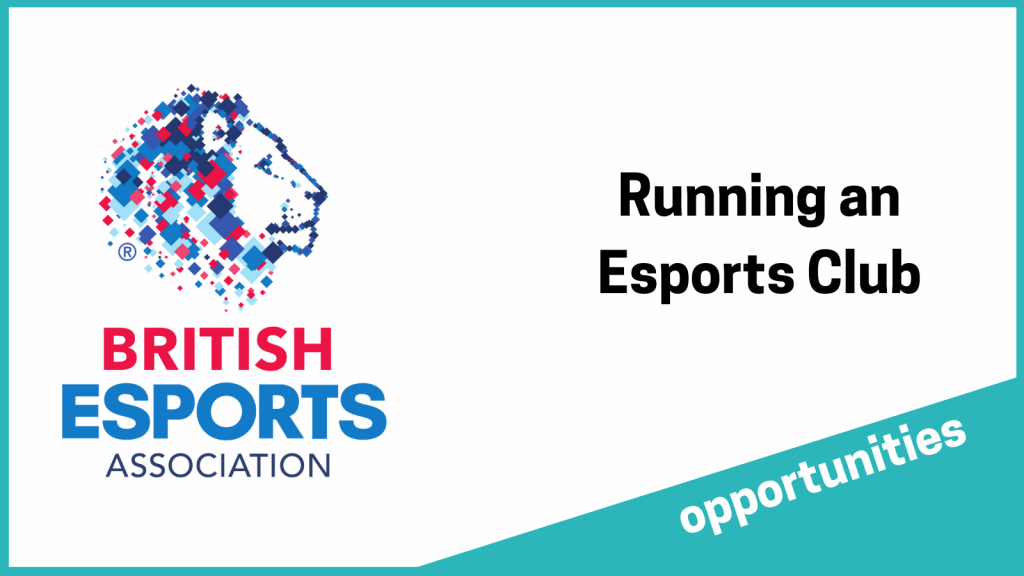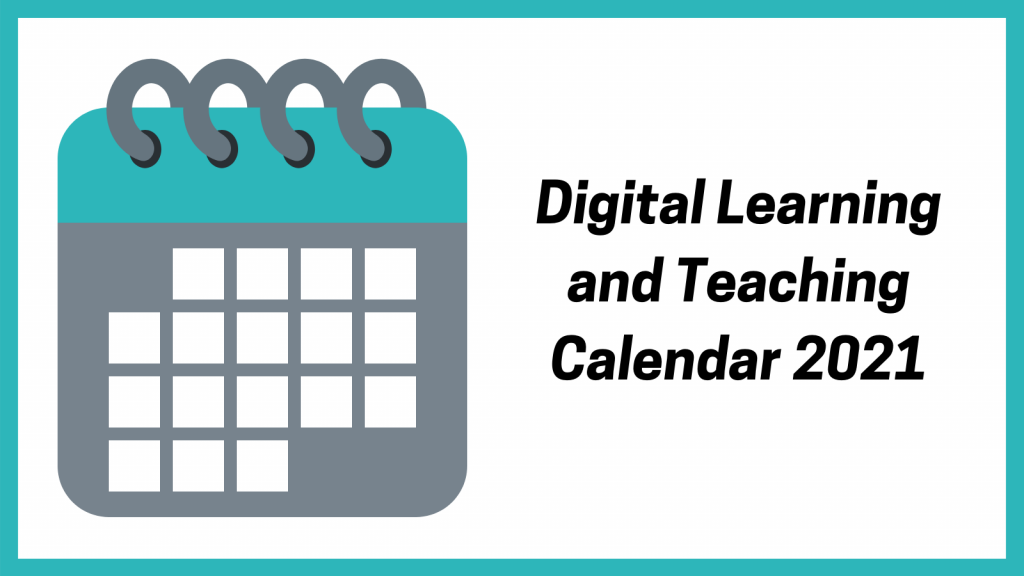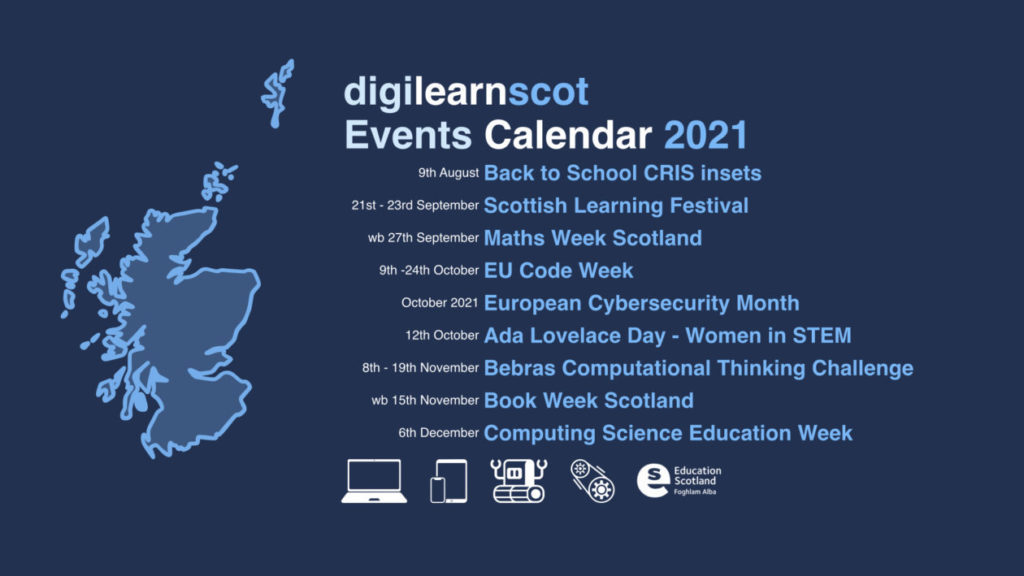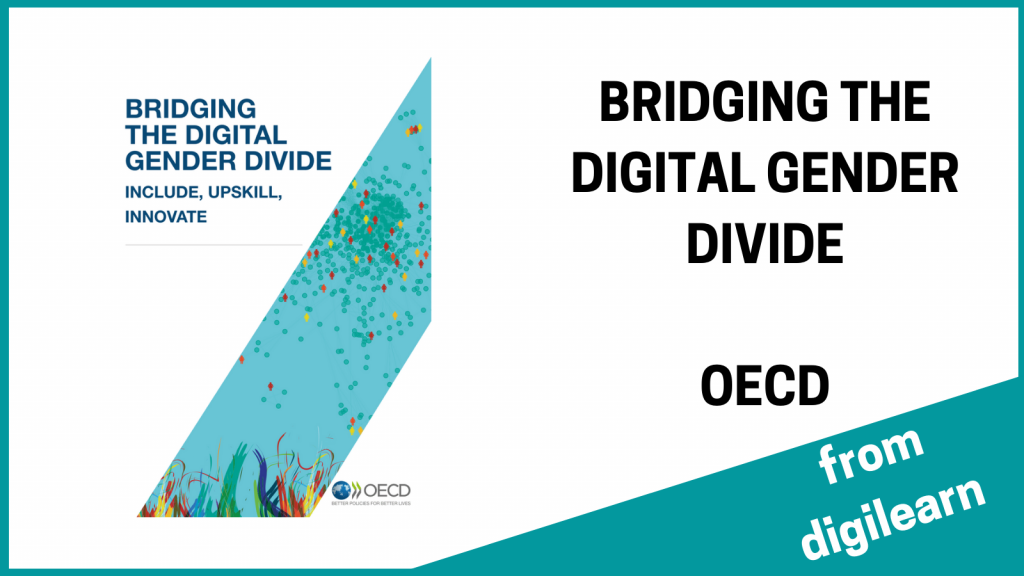by Dr Matthew Barr, Programme Director for the Graduate Apprenticeship in Software Engineering at the University of Glasgow
Last week, my colleague Anna and I were in a school on the south side of Glasgow to talk to pupils about our Graduate Apprenticeship in Software Engineering. Many of the young people we met were confident in articulating their plans for life after school, and several were already considering university or college. Others were less certain. Was university for them? What does it mean to go to university? Shouldn’t they get a job instead?
In some schools, pursuing a university degree is understood to be an option for many pupils. That is not always the case, however, which is why we’re visiting schools in areas of multiple deprivation across the west of Scotland. We’re talking to pupils who might be the first in their family to attend university, or those for whom getting a job when they leave school is the first and only priority.
A Graduate Apprenticeship – where students earn a living wage while working towards their degree – seems an obvious solution for pupils who find themselves in such circumstances. The problem, though, is that many pupils are unaware of university-level apprenticeships. This isn’t surprising, given that GAs are a relatively new offering in Scotland, but it’s essential that we get the word out to the young people that might benefit from these opportunities the most.
There are many bright, brilliant young people in Scotland with a passion for tech. And our tech sector desperately needs them! There are plenty of well-paid and hugely rewarding jobs out there for young people with Software Engineering skills, and an apprenticeship is an ideal route to securing such a job. Indeed, the job starts right away: by the time an apprentice graduates, they will already have accrued four years of work experience.
But we don’t want our apprentices to miss out on the university experience, either. That’s why our GA programme includes eight-week blocks of on-campus learning in years one and two, allowing apprentices to bond as a cohort while taking advantage of all that university life has to offer. The block-based structure of our GA programme also means that we are able to frontload a lot of our teaching, making sure that our apprentices get all of the basics down as early as possible – making them productive in the workplace as quickly as possible.
This is an opportunity that I would have seized upon, had it been an option 25 years ago. And, when I talk to pupils, parents, or teachers about the possibilities offered by a Graduate Apprenticeship, the advantages quickly become obvious: a good salary, four years’ work experience, and a University of Glasgow degree – where do I sign up?! But we need to get the message out there, which is why I was delighted to be given the opportunity to write this blog.
There is more information on our website, including our entry requirements. It’s worth noting that Higher Computing is absolutely not a requirement – we’re looking for four B grades at Higher, including a B in Maths. We also have a number of alternative routes on to the programme, which take into account certain HNC and HND qualifications, and we offer support with CV and cover letter writing when it comes to applying to employers.
The website also lists the opportunities currently on offer. This year, for example, we’re offering places with top multinational corporations like Barclays and Morgan Stanley, dynamic public sector companies including the BBC and Student Loans Company, and cutting-edge tech firms like Smarter Grid Solutions and VeryConnect.
We’re also more than happy to come and talk to pupils – please do get in touch with me directly at Matthew.Barr@glasgow.ac.uk to arrange a visit, or for more information. The Graduate Apprenticeship in Software Engineering is such a fantastic opportunity, and we don’t want anyone to miss out!

